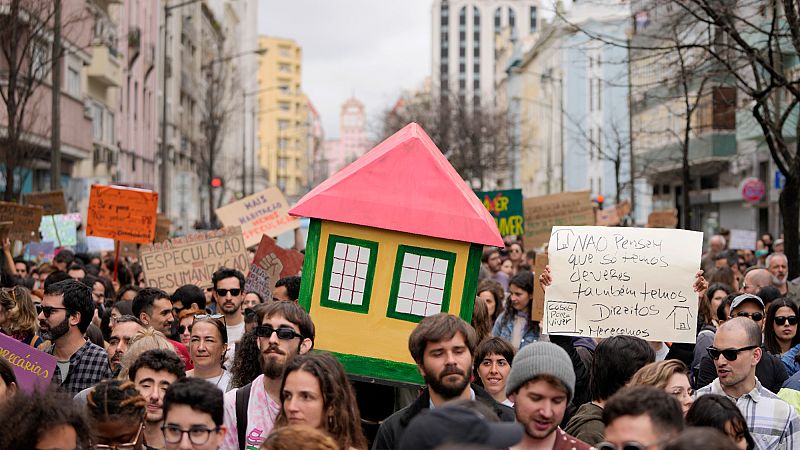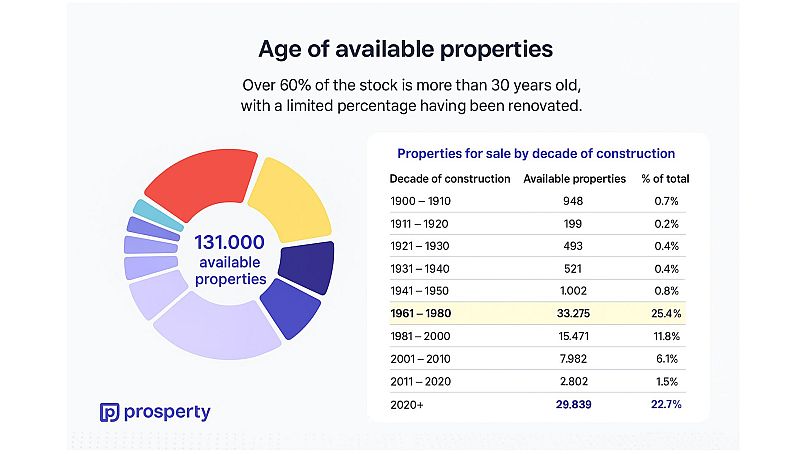Greece acts on housing crunch as shortages pile pressure on government

With two new tools — social rent and social housing — the Greek government will try to alleviate the country's property crisis.
According to the minister of social cohesion and family, Domna Michailidou, these two measures are "complex tools", requiring cooperation between multiple stakeholders. In particular, social housing projects will require the mobilisation of long-neglected public assets — such as state-owned vacant land.
In cooperation with the Ministry of Defence, the new housing initiatives will make use of inactive military sites, and three camps in Athens, Thessaloniki, and Patras have already been selected.
This first phase of the programme aims to develop around 1,500 to 1,700 social housing units, affordable to middle-income households.
"Our goal is to be able to have increased housing stock very quickly, exactly where it is needed, in the heart of urban centres in Athens, Thessaloniki and Patras," said Michailidou.
Social renting
The government's second measure, social renting, involves a partnership between the public and private sectors. The aim is to redevelop existing buildings that are no longer in use, rather than building new units on vacant land.
A private investor will undertake the redevelopment of buildings owned by public bodies and will return at least 30% of the new homes it builds to the state.
In this way, the minister said: "We are increasing the housing stock, making use of stagnant public property, and creating new social housing where there is a need."
However, market players stress that these measures, although already implemented in several European countries, will be difficult to carry out in Greece.
To begin with, many publicly owned properties have complex ownership status that takes months or even years to resolve.
At the same time, the approval and licencing procedures for new housing developments remain extremely time-consuming.
The real estate market is calling for "fast track" procedures for new housing construction, similar to those implemented in preparation for the Olympic Games.
How deep is the Greek housing crisis?
According to a new study by Greek real estate platform Prosperty, the Greek housing market faces both supply and demand issues, with significant distortions that keep properties unoccupied for a long period of time.
On the supply side, most available properties are old, often built in the 1960s and 1970s, and only one in ten has been renovated. Today, there are about 131,000 properties for sale and 45,000 for rent. However, many remain unoccupied for between six months and two years, mainly due to a mismatch between price and quality.
The average asking price for properties reaches €300,000, or around €2,500 per square metre. Newly built properties mainly appeal to high-income groups, with prices often exceeding €6,000 per square metre for luxury options.
On the demand side, homeownership has dropped 12%, and young people and families often struggle to buy a home because mortgages require large down payments.
Solutions exist, but they require transparency
The study proposes a range of policies, including rent-to-buy schemes with state support, as well as the expansion of the My Home programme, which is a government-led housing loan initiative aimed primarily at young people. Prosperty also calls for other state guarantees and targeted tax relief.
Other measures highlighted by the study include a graduated tax on vacant apartments in designated “red” zones, the conversion of commercial premises into residential units with state support, and the creation of a Greek Multiple Listing Service (MLS). The latter aims to end the lack of transparency in property listings and curbing irrational pricing.
"Transparency is key to fixing the market," Markopoulos stressed, noting that without clear data, no one can have a full picture on the actual availability of properties.
The study concluded that addressing the housing crisis requires not only building new properties but also implementing innovative tools, increasing transparency, and activating policies that promote homeownership and expand access to housing credit.
Today


